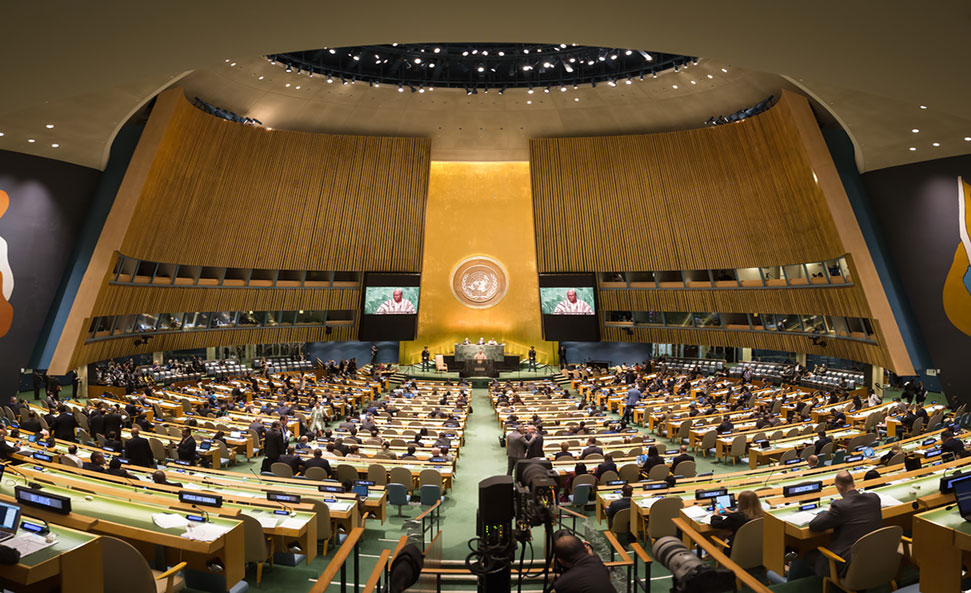The world’s vision and commitment regarding sustainable development have been changing throughout the time. Science has been developing and helping to build the foundations what are the causes and consequences of climate change. Simultaneously, world leaders have been changing their commitments to this problem. Find below a summary of some of the most important conferences about sustainable development.
[1972] UN Environment Conference & Sustainable Development
After the tragedy of commons and limits to growth theories, the world organized itself regarding global politics. The first historical conference about environmental concerns was organized in Stockholm in 1972. Here, the world leaders meet to discuss the human impact on the environment and how it was related to economic development. One of the main goals of this gathering was to find a common outlook and common principles to inspire and guide the world’s population to preserve the “human environment”.
- Related content:
[1979] 1st World Climate Conference
In 1979, the World Climate Organization (WMO), the UN Environment Programme, the Food and Agricultural Organizational (FAO) and the World Health Organization (WHO) organized the First World Climate Conference in Gevene, Switzerland. One of the main goals of the conference was to assess the knowledge of climatic change as for how natural and anthropogenic causes influenced it. The other objective was to analyze possible future climatic variability and its implication on human society.
- Related content:
[1988] World Conference on the Changing Atmosphere
The World Conference on the Changing Atmosphere, also known as the Toronto Conference, took place in Toronto, Canada, in 1988. More than 300 scientists and policy-makers participated with the goal of taking specific actions to reduce the threatening crisis caused by the pollution of the atmosphere. The Conference aim was also to develop a comprehensive framework for protocols on the protection of the atmosphere.
[1992] Rio de Janeiro Earth Summit & Sustainable Development
Twenty years after the Stockholm Conference, the UN tried to help the world leaders rethink about economic development and come up with solutions to prevent the destruction of irreplaceable natural resources and the pollution of the planet. The conference’s main message was that a transformation of attitudes and behavior would bring the necessary changes and that more consciousness about the impact that excessive consumption was having on the environment was needed. Governments acknowledged the call to redirect international and national projects and policies to assure that economic decisions took environmental impacts into consideration.
It was also set that toxic components such as gasoline or poisonous waste would be scrutinized and that alternatives sources of energy should be developed for the future. The need to rethink public transportation systems in order to reduce emissions and to fight the health problems in cities caused by polluted air were discussed as important issues to reach a sustainable development.
[1993] UN Conference on Human Rights & Sustainable Development
This conference took place in Vienna, Austria, and its main outcome was the Vienna Declaration and Programme of Action. This document stated that the universal nature of all human rights and fundamental freedoms was unquestionable and that all human rights are universal, indivisible, interdependent and inter-related. At the same time, the world leaders also confirmed that international actions would be taken to promote and protect human rights.
[1995] 1st COP & Sustainable Development
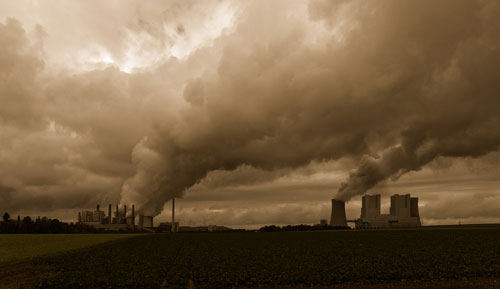
The first UN Climate Change Conference took place in 1995 in Berlin. It was focused on the ability of the world’s nation to develop and implement policies to fight climate change. Specifically, it the world’s leaders started negotiating legally binding obligations for developed countries to reduce their emissions of greenhouse gases – that would later be materialized in the Kyoto protocol.
These Conferences Of Parties (COP) are yearly conferences held by the UN that aim to formally gather the UN Framework Convention on Climate Change (UNFCCC) to assess the progress in dealing with climate change.
[1996] World Food Summit & Sustainable Development Conference
The World Food Summit took place in Rome, Italy, in 1996. The summit was organized by the Food and Agriculture Organization of the United Nations (FAO). The big conclusions of this conference were written in the Rome Declaration on World Food Security. This document’s main ideas were that all people have the right to have access to safe and nutritious food and that politicians would commit to ongoing national and international efforts to eradicate hunger in all countries and to immediately reduce the number of undernourished people in the world.
[1997] The Kyoto Protocol & Sustainable Development Conference
The Kyoto Protocol is an international treaty that lengthens the 1992 United Nations Framework Convention on Climate Change and was adopted in Kyoto (although it only entered into force in 2005). It represents the commitments that state parties made to reduce GHG emissions. The parties recognized the threat of GHG emissions to global warming and how human activities had been increasing these emissions.
In other words, the goal of this protocol was to stabilize the greenhouse gases (GHG) concentrations (specifically CO2, methane, nitrous oxide, sulfur hexafluoride, hydrofluorocarbons and perfluorocarbons) in the atmosphere at a level that prevents dangerous anthropogenic interference with the climate system.
[2000] Millenium Summit & Sustainable Development Conference
The goal of this 3-day conference that was held in New York, USA, was to discuss the role of the United Nations at the turn of the 21st century. 189 member states of the United Nations, the largest gathering of world leaders in history up to that date, agreed on the need of helping the world’s poorest countries to develop and achieve a better life by the year 2015. This and other agreements on global issues were summarized in the millennium declaration, from which 8-millennium development goals (MDG) were created:
- Eradicate extreme poverty and hunger;
- Achieve universal primary education;
- Promote gender equality and empower women;
- Reduce child mortality;
- Improve maternal health;
- Combat HIV/AIDS, malaria and other diseases;
- Ensure environmental sustainability;
- Develop a global partnership for development.
[2002] Johannesburg’s Conference on Sustainable Development
The Johannesburg Earth Summit 2002 gathered tens of thousands of participants focused on discussing how to improve people’s lives, preserve natural resources and dealing with global problems such as the demand for food and water or the improvements needed in the energetic and economic fields. In this conference, companies joined governments and NGO’s for the first time.
[2005] New York World Summit on Sustainable Development
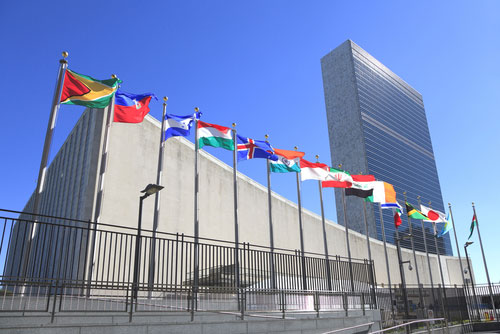
The 2005 World Summit took place in New York and the international community discussed concrete ways to fight poverty and all forms of terrorism, re-inforcing their willingness to protect civilians from all crimes committed against humanity such as genocide or war crimes. In this way, both the Peacebuilding Commission and the Human Rights Council were created to help in the war to peace transition.
[2009] Copenhagen Summit & Sustainable Development
The Copenhagen Conference signaled the climax of a two-year negotiation that started in COP13 in Bali, whose aim was to enhance international climate change cooperation. Expectations were that the Copenhagen Climate Conference would end up in an agreement. And the hopes were this agreement would lead the world toward a path to prevent and fight climate change after the Kyoto’s Protocol deadline. Nonetheless, no specific consensus was reached and this wasn’t really the case as. Although many countries pledged they’d act, the Copenhagen Accord wasn’t formally adopted after the negotiations.
[2012] Rio20+ UN Conference on Sustainable Development
The United Nations Conference on Sustainable Development – or Rio+20 – took place in Rio de Janeiro. The world leaders decided to launch a process to develop a set of sustainable development goals (SDGs) built upon the millennium development goals created in 2000 in the NY UN Conference. The purpose of these goals was to promote sustainable development in an organized, integrated and global way.
Nations agreed on exploring different measures of wealth other than GDP that consider environmental and social factors. This was a clear attempt to make it up to nature’s environmental services like carbon absorption or biodiversity – acknowledging these services as crucial for sustainable development.
Other outputs of this conference were that the UN Environment Programme would see its financial resources increased. Its governance would also be strengthened by a more universal membership because of key UN coordination bodies being more engaged. The world leaders also suggested tax shifts where polluters and landfill operators would pay more. And they some also proposed fossil fuel subsidies be gradually put aside.
[2014] UN Climate Change Conference & Sustainable Development
The United Nations Climate Change Conference or COP20 was held in Peru in 2014. In this meeting, negotiations towards a global climate agreement started being made. The goal was to reduce the greenhouse gases emissions and to limit the global temperature increase to 2º Celcius.
[2015] COP21 & the Paris Agreement for Sustainable Development
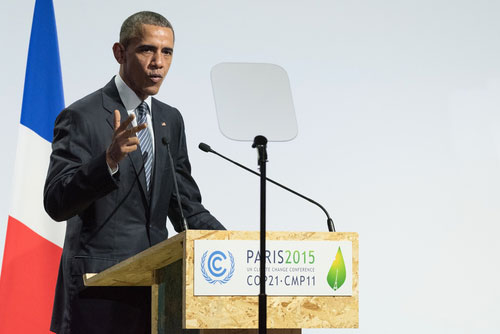
In COP21 the Parties to the United Nations Framework on Climate Change reached a landmark agreement. They agree to accelerate and intensify the actions and investments needed for a sustainable low carbon future. In fact, the Paris Agreement brought for the first time all nations into a united cause: taking bold efforts to fight climate change and adapt to it. It marks a new course in the global climate effort. One that aims to keep the global temperature rise below 2 degrees Celsius above pre-industrial levels. Moreover, the agreement also aims to strengthen the capacity of nations to deal with the consequences of climate change.
[2015] New York & the new Sustainable Development Goals (SDGs)
In 2015, in New York, the 193-Member United Nations General Assembly adopted the 2030 Agenda for Sustainable Development. This agenda is a course of action for people and planet to be able to prosper in a peaceful and wealthy world.
The world leaders recognized that eradicating poverty was the biggest global challenge to sustainable development. They stated all nations and stakeholders should collaborate to implement the new agenda. This program is divided into 17 sustainable development goals and 169 targets. All of these goals and targets are integrated with the social, environmental and economic dimensions of sustainable development.
- Related content:
- What are the 17 sustainable development goals?
- How much inequality is in the world today?
[2018] COP24 in Katowice, Poland
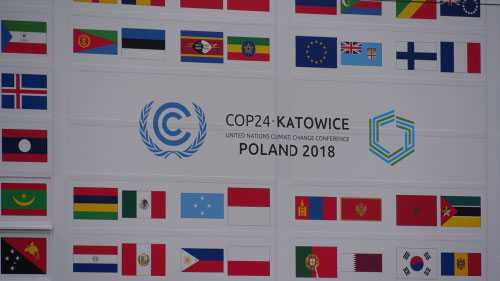
During this conference, important announcements were made, starting with the UN general director. António Guterres warned humankind is out of the desired path regarding the climate change fight. He also underlined that most nations responsible for GHG emissions are late in their efforts to accomplish their Paris’ promises.
The world leaders detailed the rules for the application of the Paris Agreement in December 2018. At the same time, they also set guidelines to fight climate change over the next years. Over 160 countries presented their plans to reduce greenhouse gases emissions and the missing ones must do so until 2020.
The international community has also created rules to verify if nations’ goals are being accomplished after 2024. The idea is that every two years every country presents reports its climate change actions. And these will afterward be reviewed by specialists. Nevertheless, nations that don’t comply won’t be punished (they won’t be fined). As well, on a 5-year basis, the global efforts to keep the Earth’s temperature under 2ºC will be assessed. This assessment will start in 2023.
Images credits to United Nations on Shutterstock, UN Conference on Shutterstock, COP24 Katowice on Shutterstock and COP21 Paris on Shutterstock
